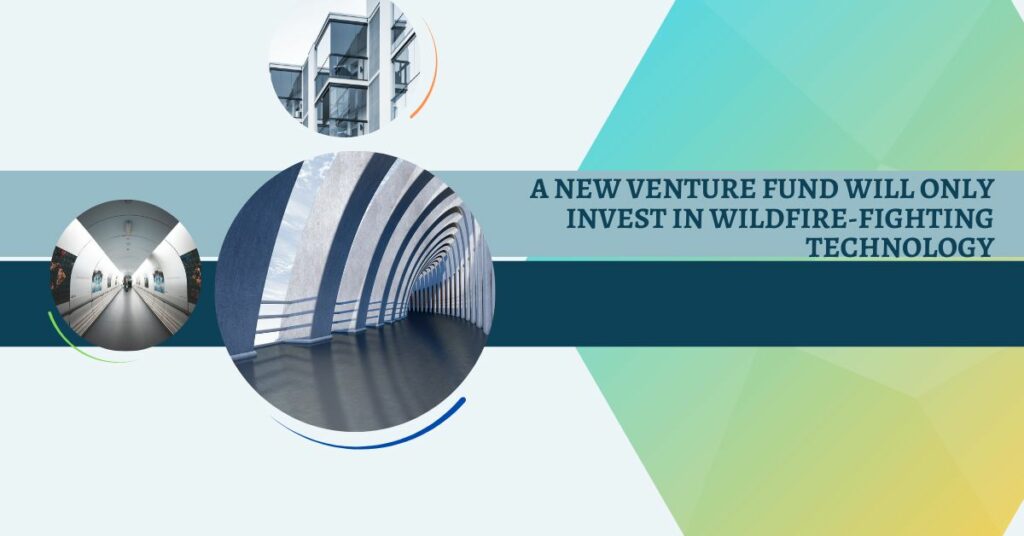To better serve their clients, some VC firms focus on a certain industry, such as transportation or cryptocurrency. California is home to a new investment vehicle called Convective Capital, and its exclusive focus will be on preventing and putting out wildfires.
This month, a new fund launched with $35 million to support technology businesses working to detect, prevent, or manage the spread of wildfires, an increasing calamity in the American West and around the world.
Wildfires cause an annual estimated $50 billion in damage, and investors believe that modern firefighting technology, including drones, weather sensors, and expensive fire retardants, has done nothing to mitigate this natural and economic disaster. “There’s still a really huge gap between what needs to be done and what’s being done,” says Bill Clerico, founder and managing partner of Convective Capital.
Former mobile payments industry employee of Clerico. Clerico moved to a ranch in Mendocino, north of San Francisco, after selling his firm WePay to JPMorgan Chase & Co. in 2017, only to be confronted by the harsh realities of rural living. Near his home, a fire that spread over 90 acres licked the approach road. It was difficult to get insurance.
You can read these venture-related artciles:
- Grayscale’s New Venture Targets Bitcoin Mining Bear Markets
- CRV Is Launching $1.5 Billion In Early-Stage Company Funding
- Amazon Invests $150 Million In Underrepresented Founders
He reflects on his experience: “I was basically running into wildfire all the time.” Clerico joined the fire department on a voluntary basis and started looking for engineers who were already working on a solution. Charity’s work on wildfires was how he met the three other technologists who would become partners in the fund. Their backers include anonymous philanthropies and affluent people whose homes have been damaged or endangered by fires, but Clerico would not reveal their identities.
Convective Capital partner George Whitesides, who was previously the CEO of Richard Branson’s space venture Virgin Galactic, faced frequent fires in the desert during his tenure at Virgin Galactic. He claims it was a “foreshadowing” of future events.
Whitesides, a former NASA administrator, thinks aerospace and aviation technology firms can significantly aid fire control by providing communication equipment during disasters and doing damage assessments. Overstory, a software business, uses satellite pictures of vegetation to determine high-risk locations for wildfires and has already received an investment from Convective Capital.
Pano AI, which develops cameras to detect new flames, and Burbot, a robotics business working on controlled burns to limit fires, have both received funding from the fund. In the next three years, the investors will write another 15 checks for “fintech.”
Clerico believes that his portfolio companies’ ideal clients include government agencies, utilities, insurance companies, and property owners. In spite of the fact that governments and utilities aren’t flush with cash, they have nonetheless pledged billions to combat wildfires, creating an urgent need that might provide startups with a better sales foothold. Clerico believes that while the current issue is serious, there is some good news: wildfires are a high priority, especially for utilities.
However, wealthy residents have shown they are prepared to pay for any fire remedy, raising concerns that fire tech will exclusively benefit the wealthy. To Clerico’s mind, the rules as they stand are skewed in that direction. And he adds, “Right now, tech aside,” meaning that it is happening. “Only high-value properties are being insured by insurance providers.” Moreover, he says, his fund will urge businesses to promote economic inclusion in accordance with established standards.
Startups may be tempted to use technology to address issues that would be better addressed by investing in human capital, better logistics, and more effective government regulation. Orange County, California’s fire chief, Captain Brian Fennessy, says he is “constantly” approached by entrepreneurs with business proposals. Unfortunately, many of them ignore his special requirements. Despite the proliferation of businesses offering fire departments unmanned drones or aircraft, Fennessy maintains that having a person in the cockpit who can respond to emergencies is preferable.
Even yet, Fennessy is grateful for the help he has received from Convective Capital and other VC firms. In particular, he is looking for businesses that can report real-time updates on nighttime and wildfire situations on the ground. Fennessy warns that “the fire’s already grown” if help arrives more than a minute or two late.
He feels helpless despite the fact that his division has access to two planes and a supercomputer. Simply put, “we’ve been outperformed and outflanked by these flames,” he says.
Keep following venturejolt.com for more updates. Don’t forget to bookmark our site for recent updates on the venture.
